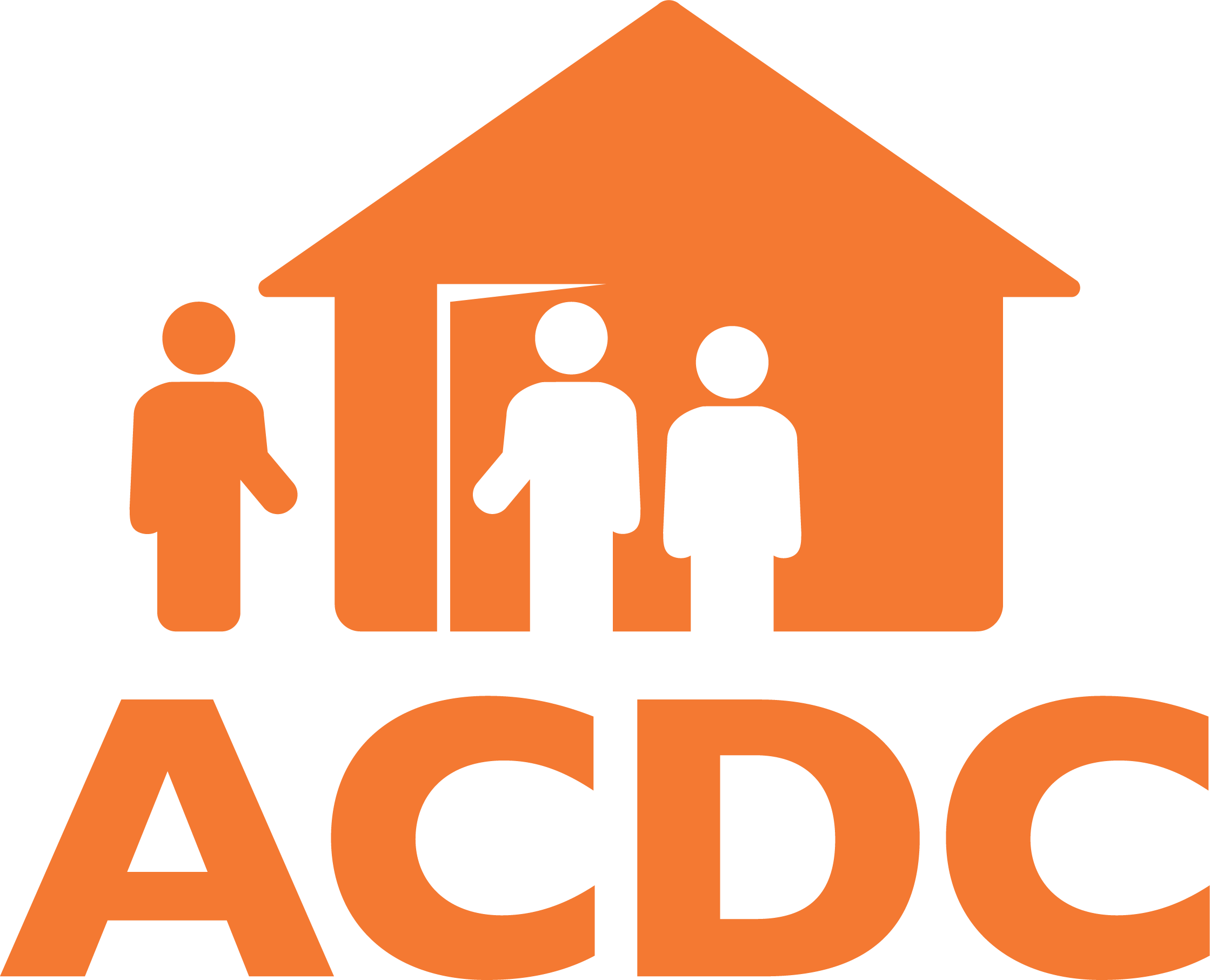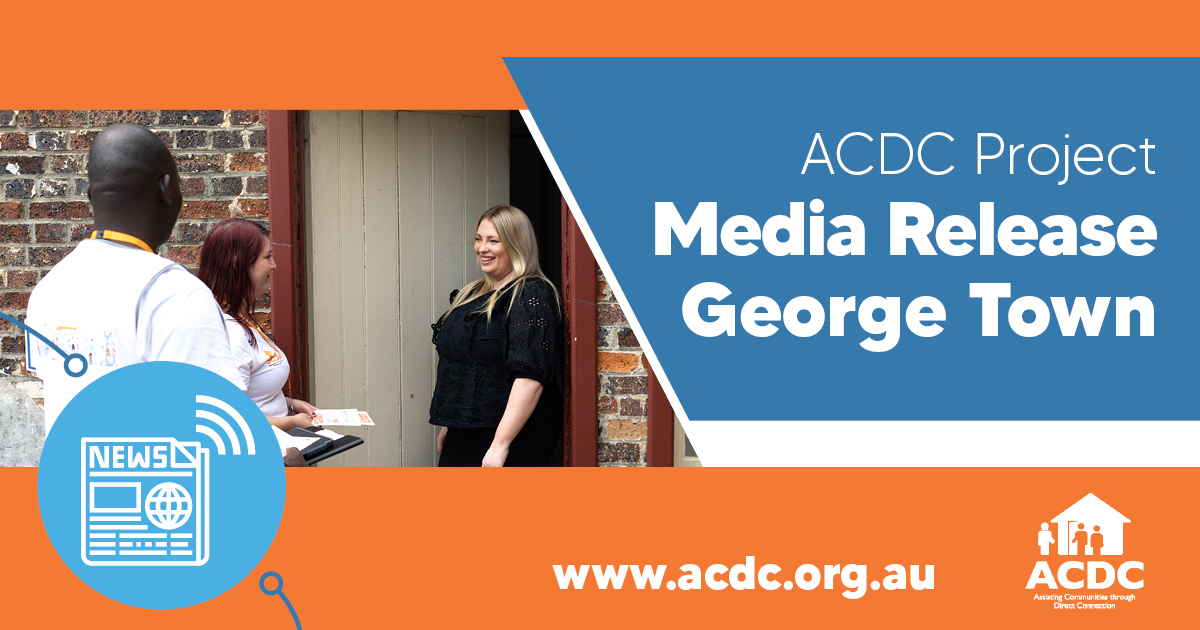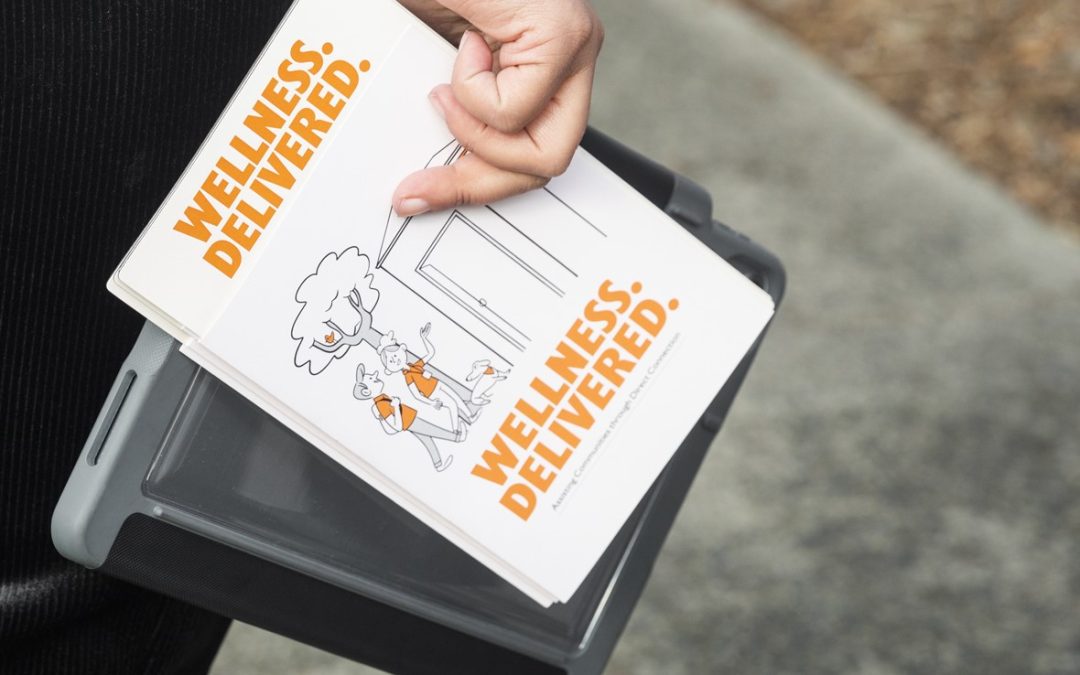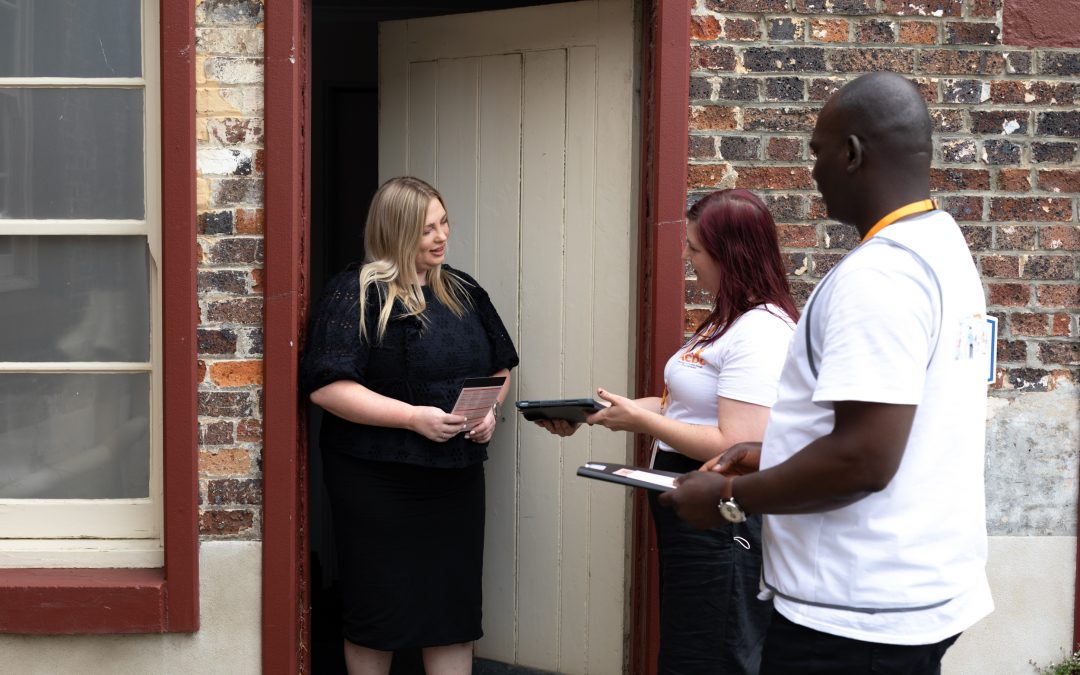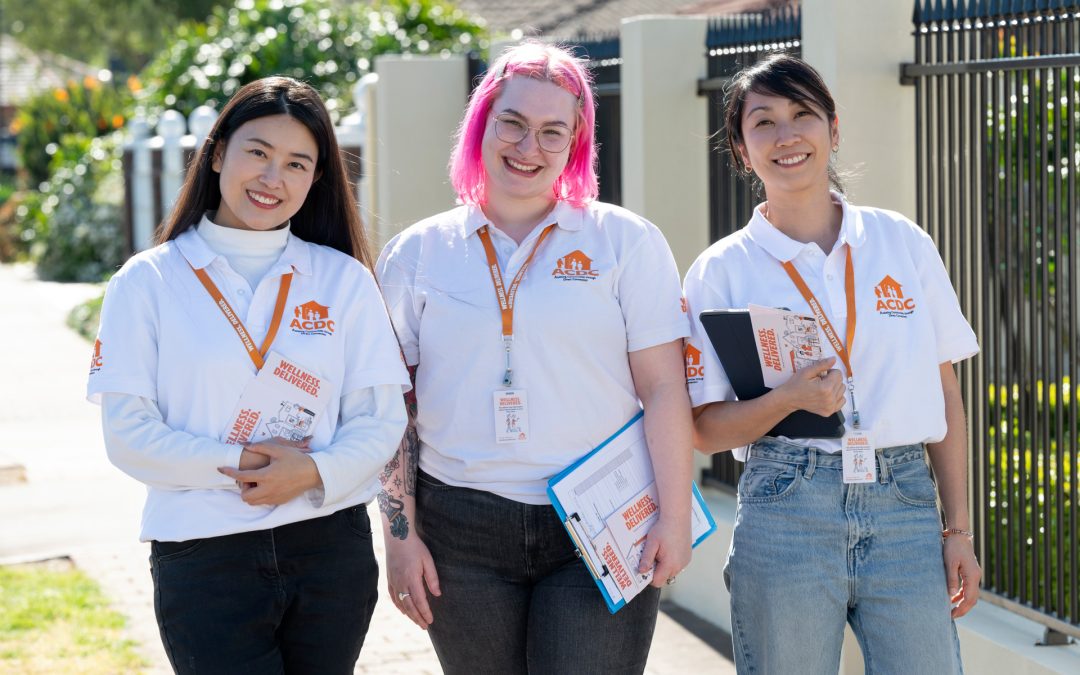Sometimes all it takes is a conversation.
A new project in George Town aims to talk with community members about their mental health and help link them with wellbeing services in their area.
With the COVID-19 pandemic still affecting Australians, the Assisting Communities through Direct Connection (ACDC) Project is going door-to-door to check-in with locals.
The ACDC Project, run by Community Mental Health Australia (CMHA), is visiting over 20 sites in Australia to improve community wellbeing and collect important data.
“Unfortunately for many reasons people do not want to talk about or even think about their mental health,” says CEO of CMHA, Bill Gye.
“People may prefer to tough it out, hide it from others, or avoid the stigma. The ACDC Project is going directly to households in Australia to engage them in conversation about these important issues.”
CMHA are working with local service provider, Wellways, to doorknock in George Town from March to May 2022.
The ACDC Project are not typical door knockers. They make contact via friendly ‘People Connectors’ who let people know about the free services available and deliver an information pack with a fridge magnet and brochures.
People Connector Lucinda Fleming hopes the ACDC Project will improve access to services that people may not have known about.
“George Town is a beautiful community and I think everyone wants to help each other where they can. Things have been tough for everyone during the pandemic, and it may encourage people to check in on their neighbours, friends and family and make sure everyone is doing ok.”
The other aim of the ACDC Project is to gather feedback on any service gaps so that improvements can be made by local, state, and federal governments.
ACDC Project Line Manager, Chantelle Henry, says the George Town community is in need of many services and the project data will help to show this.
“There is a lack of youth services, local alcohol and drug services and a lack of community transport to access Launceston, the closest major town for services that are not available in the local community,” she says.
For each of the communities visited throughout Australia, the ACDC Project will generate data and information about the reasons why people do not access support from local services.
The findings of the ACDC Project evaluation report will contribute to discussions about funding for community managed mental health services in Australia, and how the mental health support needs of people in communities are delivered.
It will also evaluate how effective a proactive approach is in reaching, engaging, and resourcing people to connect with services.
“The ACDC Project aims to address a serious problem with mental health services in Australia. Often, people only look for or receive support when they are in crisis. We must be much more proactive connecting and communicating with people about the importance of wellbeing. Prevention and early intervention are far more effective than dealing with people in crisis,” says Bill Gye.
The ACDC Project provides this important information to householders of all educational, cultural and language backgrounds to promote access to mental health, social and emotional wellbeing support.
If the householder is not home a card is left in their letterbox with contact details so they can ask the People Connectors to come back.
For more information about The ACDC Project go to www.acdc.org.au
The ACDC Project is funded by the Department of Social Services.
END
